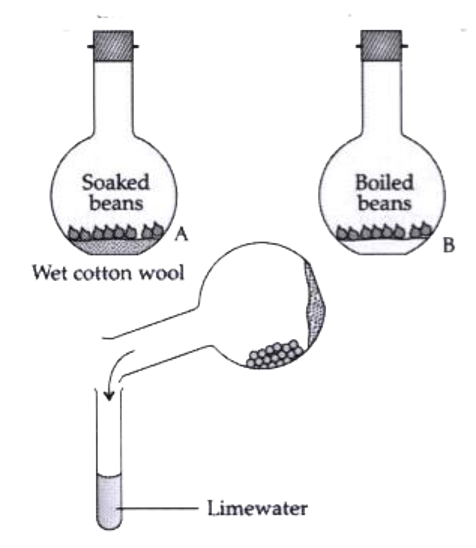Answer the following questions :
Why is soil tested for pH ?
Step-by-Step Solution:
1. Understanding Soil pH: Soil pH is a measure of how acidic or basic the soil is. It is important because it affects the availability of nutrients to plants and the overall health of the soil ecosystem.
2. Agricultural Purposes: Different plants have different pH requirements. Some plants thrive in acidic soils, while others prefer basic soils. Testing soil pH helps farmers determine if the soil conditions are suitable for the crops they wish to grow. If the pH is not optimal, it can lead to poor plant growth and low yields.
3. Groundwater Quality: Soil pH can influence the quality of groundwater. If the soil is highly acidic, it can cause the groundwater to also become acidic. Acidic water can be harmful for human consumption and can affect the health of ecosystems.
4. Impact on Microorganisms: Soil pH affects the types of microorganisms that can thrive in the soil. Many beneficial microorganisms, such as bacteria and earthworms, play a crucial role in nutrient cycling and decomposition. If the pH is not suitable, these organisms may not survive, leading to a decrease in soil fertility and health.
5. Environmental Concerns: Acidic soils can contribute to environmental issues such as acid rain. Rainwater can pick up acidity from the soil, which can then lead to further environmental degradation.
Final Answer:
Soil is tested for pH for several reasons:
- To determine the suitability of soil for specific crops, as different plants require different pH levels for optimal growth.
- To assess the quality of groundwater, as acidic soil can lead to acidic groundwater, which is harmful for consumption.
- To ensure the presence of beneficial microorganisms that aid in soil health and nutrient cycling.
- To prevent environmental issues such as acid rain, which can arise from acidic soils.
---
Soil is tested for pH for several reasons:
- To determine the suitability of soil for specific crops, as different plants require different pH levels for optimal growth.
- To assess the quality of groundwater, as acidic soil can lead to acidic groundwater, which is harmful for consumption.
- To ensure the presence of beneficial microorganisms that aid in soil health and nutrient cycling.
- To prevent environmental issues such as acid rain, which can arise from acidic soils.
Topper's Solved these Questions
- STUDY OF ACIDS, BASES AND SALTSBOOK - ICSECHAPTER - STUDY OF ACIDS, BASES AND SALTSEXERCISE - WORKSHEET-4
13 Videos
- STUDY OF ACIDS, BASES AND SALTSBOOK - ICSECHAPTER - STUDY OF ACIDS, BASES AND SALTSEXERCISE - WORKSHEET-5
19 Videos
- STUDY OF ACIDS, BASES AND SALTSBOOK - ICSECHAPTER - STUDY OF ACIDS, BASES AND SALTSEXERCISE - WORKSHEET-2
15 Videos
- SPECIMEN QUESTION PAPER (CHEMISTRY)BOOK - ICSECHAPTER - SPECIMEN QUESTION PAPER (CHEMISTRY)EXERCISE - Questions
40 Videos
- STUDY OF COMPOUNDS - AMMONIA BOOK - ICSECHAPTER - STUDY OF COMPOUNDS - AMMONIA EXERCISE - UNIT TEST PAPER 7B - AMMONIA
22 Videos
Similar Questions
Knowledge Check
Study the map and answer the following questions:

Which soil is found in the shaded region?ABlack soilBAlluvial soilCRed soilDLaterite soilStudy the map and answer the following questions:

Which soil is found in the shaded region?ABlack soilBAlluvial soilCRed soilDLaterite soil
Answer the following questions :
What is fermentation ?
View SolutionAnswer the following questions :
Why are alkalis used in space shuttles .
View SolutionAnswer the following questions :
Why is methyl alcohol known as wood alcohol ?
View SolutionStudy the experimental set given below and answer the following questions :

Which is the control set-up and why?
View SolutionWith reference to Littoral forest, answer the following questions :
Why do the trees in this forest grow aerial roots ?
View SolutionStudy the experimental set given below and answer the following questions :
Why is the coloured water risen in Tubing 1?
View Solution
